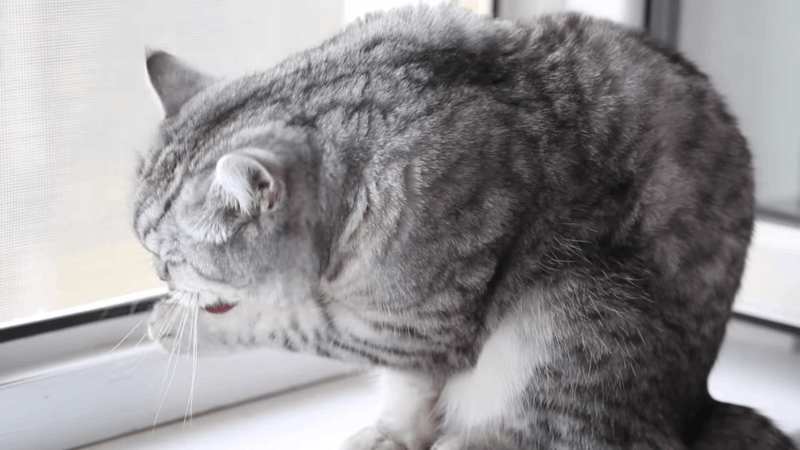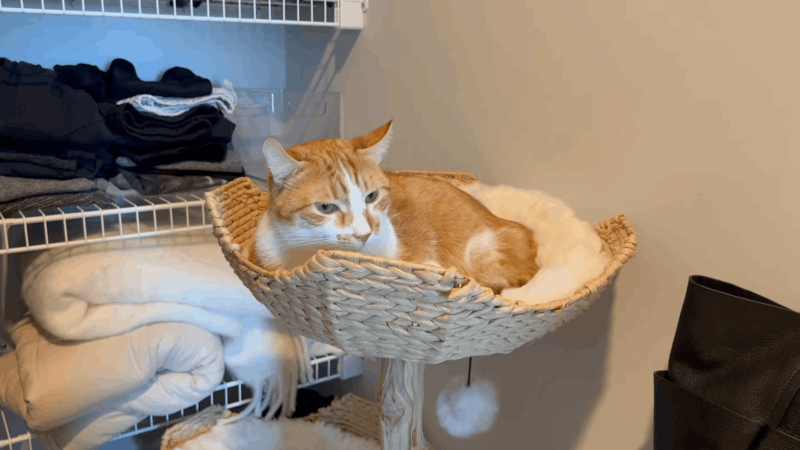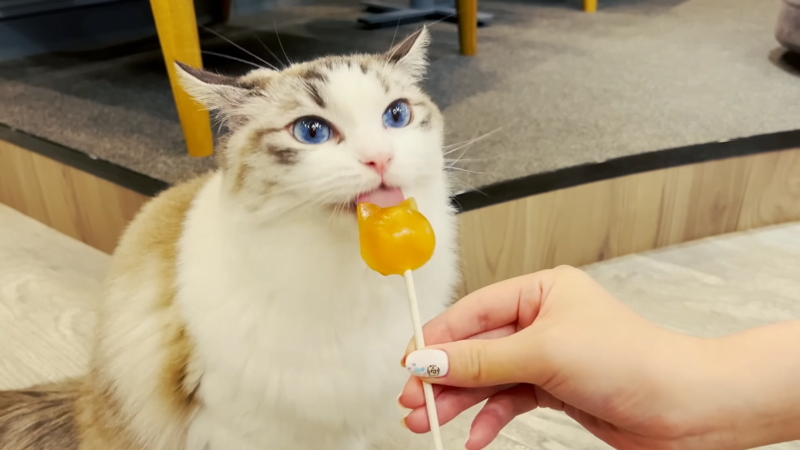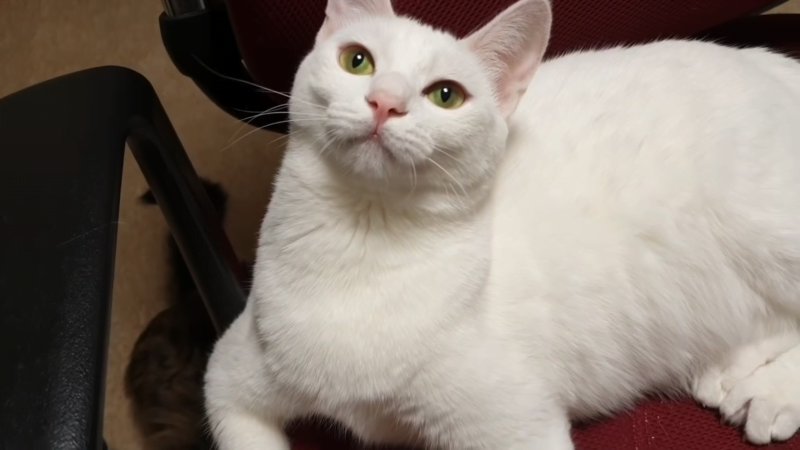No products in the cart.
CBD for IBS in cats has gained attention as a possible treatment for managing this digestive disorder. CBD is popular for its potential therapeutic properties and its ability to interact with the feline endocannabinoid system. This interaction holds promise in alleviating symptoms and improving the overall well-being of cats with IBS. In this blog, we will discover CBD for IBS in cats, the effect of CBD oil and IBS on cats’ bodies, how to use CBD oil for IBS in cats, and can CBD help IBS in cats.
What Is CBD for IBS in Cats?
CBD for IBS is a natural compound derived from the hemp plant. It is known for its potential therapeutic properties and has gained attention as a possible treatment for various health conditions, including IBS (Irritable Bowel Syndrome) in cats. CBD interacts with the feline endocannabinoid system, which regulates various physiological processes, including digestion. CBD for IBS in cats refers to the use of CBD products to alleviate symptoms and manage the condition in feline patients.

The Symptoms of IBS Conditions in Cats
IBS in cats can present a range of symptoms, although they may vary in severity and frequency among individual cats. Common symptoms of IBS in cats include:
- Frequent or chronic diarrhea: Cats with IBS may experience loose stools or diarrhea that persists over time.
- Constipation: Some cats with IBS may have difficulty passing stools, leading to constipation.
- Abdominal pain or discomfort: Cats may show signs of abdominal discomforts, such as restlessness, vocalization, or sensitivity when touched.
- Bloating or distended abdomen: The abdomen may appear swollen or distended due to gas or fluid accumulation.
- Changes in appetite: Cats may exhibit a decreased or increased appetite.
- Weight loss: Chronic digestive issues can lead to weight loss despite a normal or increased appetite.
- Vomiting: Some cats with IBS may vomit occasionally.
- Lethargy or decreased activity levels: Cats may appear less active, display reduced playfulness, or seem generally lethargic.
- Changes in litter box behavior: Cats with IBS may have changes in their litter box habits, such as increased frequency or urgency to use the litter box.
Causes of IBS Conditions in Cats
There is still some debate on the precise causes of IBS in cats. However, a number of circumstances can contribute to the condition’s emergence. These consist of:
- Food allergies or sensitivities: Cats with IBS may have sensitivities or intolerances to certain ingredients or types of food, leading to digestive disturbances.
- Intestinal inflammation: Inflammation in the gastrointestinal system can interfere with regular digestion and make IBS symptoms worse.
- Changes in gut motility: Altered movement of the intestines can affect the passage of food and waste materials, leading to IBS symptoms.
- Stress or anxiety: Cats experiencing stress or anxiety may be more prone to developing IBS or may experience an exacerbation of symptoms.
- Altered gut microbiota: Unbalances in the gut microbiome, a diverse community of bacteria and other microorganisms in the digestive system, can impair digestion and worsen IBS symptoms.
- Genetic predisposition: Some cats may have a genetic predisposition to developing IBS or have a higher susceptibility to digestive disturbances.
Challenges of Managing IBS in Feline
Managing IBS in cats can present various challenges due to the complex nature of the condition. Some challenges include:
- Difficulty identifying the underlying cause of IBS
- The requirement for a comprehensive treatment strategy that includes dietary changes, stress management, and potential medication or supplements
- The potential for ongoing symptoms and flare-ups, requiring long-term management
- Variability in individual response to different treatment approaches
- Balancing the use of medications with potential side effects
- Monitoring and adjusting treatment plans as symptoms change or evolve over time
The Effect of CBD Oil and IBS on Cats’ Bodies
1.The Effect of CBD Oil on Cats
CBD oil is believed to potentially offer the following effects for cats:
- Anxiety reduction: CBD oil has calming properties that help alleviate anxiety and stress in cats. This can be beneficial for cats with IBS, as stress is known to exacerbate gastrointestinal symptoms.
- Pain management: CBD oil has been reported to have analgesic properties, which could help cats experiencing pain related to IBS. By interacting with pain receptors, CBD may provide relief and improve the cat’s overall comfort.
- Anti-inflammatory effects: IBS in cats can cause inflammation in the digestive tract, leading to discomfort and other symptoms. CBD oil may help to lessen inflammation and support a better gastrointestinal environment.
2.The Effect of IBS on Cats
The effects of IBS on cats can include:
- Digestive disturbances: Differing bowel motions, diarrhea, constipation, and other digestive problems can result from IBS, which can interfere with a cat’s normal gastrointestinal function.
- Abdominal discomfort: Felines with IBS may develop symptoms like constipation, bloating, and abdominal discomfort, which can affect their general health and quality of life.
- Changes in appetite: IBS can cause cats to have a decreased appetite or exhibit inconsistent eating patterns. Some cats may experience weight loss as a result.

Potential Benefits of CBD in Managing IBS
CBD may offer several potential benefits in managing IBS symptoms in cats. It has been found to reduce inflammation in the digestive tract, which can help alleviate the discomfort associated with IBS. CBD for IBS may also help modulate pain perception, providing relief from abdominal pain and cramping. Additionally, CBD’s interaction with the endocannabinoid system can help regulate gut motility, potentially improving bowel movements and reducing diarrhea or constipation.
How CBD for IBS Interacts With Cats IBS
CBD for IBS interacts with IBS in cats through its influence on the endocannabinoid system (ECS), a complex network of receptors found throughout the body, including the digestive system. The ECS plays a crucial role in regulating various physiological processes, including digestion, inflammation, and pain perception.
Can CBD help IBS?
While more research is needed to determine the exact effects of CBD on IBS in humans and cats, there is growing evidence suggesting its potential benefits. CBD has shown anti-inflammatory properties, pain-relieving effects, and the ability to regulate gut motility, all of which could be beneficial in managing IBS symptoms. However, it’s important to consult with a veterinarian before using CBD for IBS in cats to ensure proper dosage and to consider individual factors.

Factors to Consider When Using CBD for Cats With IBS
When using CBD for cats with IBS, there are several important factors to consider. These factors include:
- Consultation with a veterinarian: Before incorporating CBD into your cat’s treatment plan, it is crucial to consult with a veterinarian who has knowledge and experience with CBD use in pets. They can provide guidance specific to your cat’s condition, assess any potential interactions with existing medications, and recommend the appropriate CBD for IBS product and dosage.
- Quality of CBD products: It’s essential to choose high-quality CBD products specifically formulated for pets. Look for reputable brands that provide third-party lab testing to ensure purity and potency. Avoid using CBD oil intended for humans, as it may contain ingredients that are not safe for cats.
- Starting with a low dosage: Each cat is unique, and their response to CBD for IBS can vary. Begin with a low dosage and gradually increase it over time while closely monitoring your cat’s response. It’s important to follow the dosage instructions provided by the manufacturer or as advised by your veterinarian.
- Proper administration: CBD oil for cats is commonly available in liquid form. There are different methods to administer it, such as direct oral administration using a dropper or syringe, mixing it with food, or mixing it with treats. Choose a method that works best for your cat’s preferences and ensure they consume the entire dose.
- Monitoring your cat’s response: After administering CBD for IBS, closely observe your cat’s behavior, appetite, and overall well-being. Note any changes in their IBS symptoms, such as improved digestion, reduced discomfort, or better appetite. Keeping a record of the dosage and effects will help during follow-up visits with your veterinarian.
Other Strategies for Managing IBS in Cats
In addition to using CBD for managing IBS in cats, there are several other strategies that can be implemented to support their digestive health. These strategies include:
- Dietary modifications: Working with a veterinarian, you can explore dietary changes that may help alleviate IBS symptoms in your cat. This may entail changing to a specialty diet, such as a hypoallergenic or novel protein diet, to handle any potential food sensitivities or allergies. Additionally, incorporating fiber-rich foods or supplements can help regulate bowel movements and improve overall digestion.
- Stress reduction techniques: Stress and anxiety can exacerbate IBS symptoms in cats. Creating a calm and comfortable environment for your cat, providing hiding spots, and engaging in interactive play sessions can help reduce stress levels. Additionally, using pheromone diffusers or supplements designed to promote relaxation can be beneficial.
- Environmental enrichment: Ensuring that your cat has opportunities for mental and physical stimulation can contribute to their overall well-being and help manage IBS symptoms. Provide scratching posts, climbing structures, puzzle toys, and interactive play sessions to keep your cat engaged and mentally stimulated.
- Probiotic supplements: Probiotics can help promote a healthy balance of gut bacteria in cats, potentially improving digestion and reducing inflammation. Consult with your veterinarian to determine the appropriate probiotic supplement for your cat and the recommended dosage.
How to Use CBD Oil for IBS in Cats
Using CBD oil for IBS in cats requires careful consideration. Here are some general guidelines to keep in mind:
- Consult with a veterinarian: Before taking any CBD oil for your cat, it is essential to consult with a veterinarian who is knowledgeable about CBD use in pets. They can assess your cat’s specific condition, provide guidance, and recommend the appropriate CBD product and dosage.
- Choose a high-quality CBD oil: Look for CBD oil specifically formulated for pets, preferably from reputable brands that provide third-party lab testing to ensure quality and purity. Avoid using CBD oil intended for humans, as it may contain ingredients that are not safe for cats.
- Start with a low dosage: Every cat is unique, and their response to CBD can vary. Begin with a low dosage and gradually increase it over time, closely monitoring your cat’s response. It’s important to follow the dosage instructions provided by the manufacturer or as advised by your veterinarian.
- Administer the CBD oil properly: CBD oil for cats is commonly available in liquid form, and there are several ways to administer it:
- Direct oral administration: Use a dropper or syringe to administer CBD oil directly into your cat’s mouth and let them take a swallow.
- Mixing with food: If your cat is reluctant to take CBD oil directly, you can mix the appropriate dosage with their food. Ensure that they consume the entire portion to receive the desired effects.
- Mixing with treats: Another option is to mix the CBD oil with their favorite treats. This method can be useful for cats who are particularly finicky about taking medication.
- Observe your cat’s response: After administering CBD oil, closely monitor your cat’s behavior, appetite, and overall well-being. Note any changes in their IBS symptoms, such as improved digestion, reduced discomfort, or better appetite. Keep a record of the dosage and effects to discuss with your veterinarian during follow-up visits.
- Adjust dosage if necessary: If you don’t get the desired results or your cat has any unfavorable responses, see your veterinarian to change the dosage as needed. You may also want to think about trying an alternative form of treatment.

Conclusion
CBD for IBS in cats has emerged as a potential solution for managing this digestive disorder. CBD for IBS offers therapeutic benefits, providing anti-inflammatory, analgesic, and regulatory effects. CBD has the ability to lessen abdominal discomfort, lessen inflammation, and enhance overall digestive health in cats by addressing the underlying causes and symptoms of IBS. With careful consideration and guidance, CBD for IBS can be a valuable tool in managing IBS and improving the well-being of cats suffering from this condition.
I am Nelson Cooper, I pursue my passion for writing and my belief is that cats love humans. I enjoy traveling and have a deep appreciation for the beauty of nature, as well as a soft spot for animals, particularly cats.



